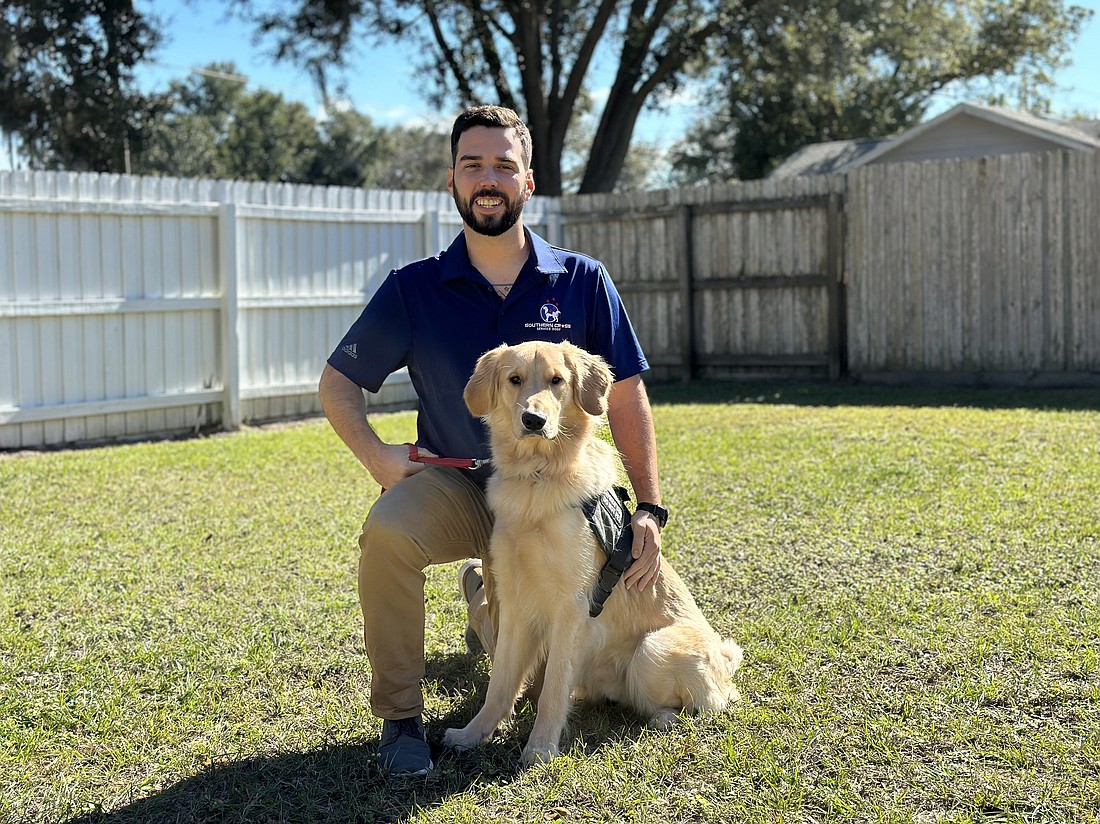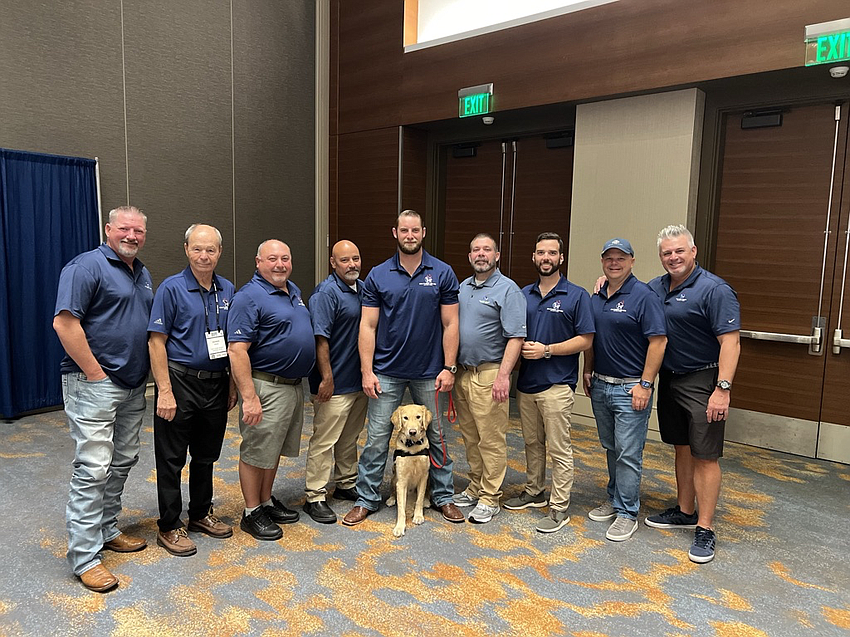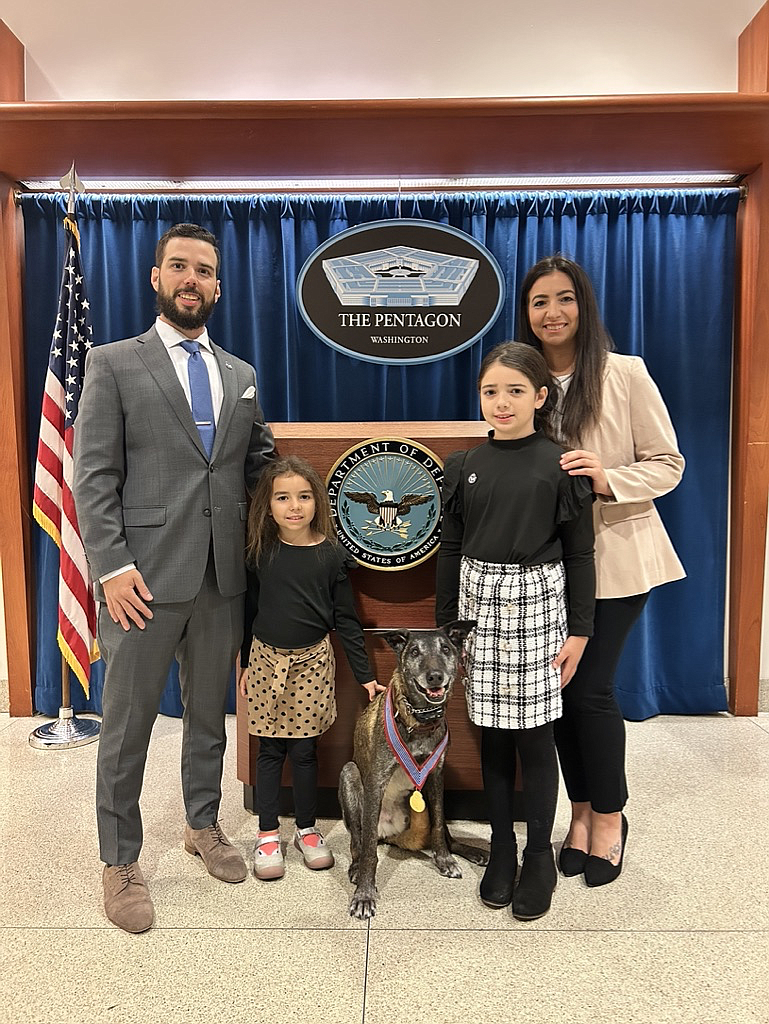- October 23, 2024
-
-
Loading

Loading

Before he was even a teenager, Brandon Marquez knew he wanted to serve his country.
“Seeing the military from a younger age — I was in sixth grade at that time — was incredibly impactful to me,” he said. “Throughout the next couple years, I started to see it on the news, and I knew it was always something that I felt I needed to do.”
Marquez, now 33, served for 10 years in the U.S. Marines. He completed four six-month deployments in a five-year span in locations such as Iraq, Afghanistan, Jordan and Somalia.
During that time, Marquez saw more combat than not. Eventually, it started catching up to him.
“My third deployment, I was knocked around a couple of more times with explosions and such, which caused my brain injuries,” he said. “It was an equally physical and mental toll. I decided to take one more deployment after that. When I came back, I was about 28, and I knew it was time to start addressing my health. I was struggling with even holding something still. My brain had taken so many overpressure-type explosions that it caused my hands to tremble. My memory wasn’t great, and I was having trouble with insomnia and nightmares. I kind of lived all of it. … It took a long time for me to work through that. I tried a lot of different types of therapy. … The dogs are really what saved me.”
SOUTHERN CROSS SERVICE DOGS
Marquez is now using his own story and experiences to help other veterans experiencing substantial post-combat mental-health challenges.
There are 18.5 million veterans in the United States. One in three veterans has substantial post-combat mental health challenges, and about 20% of veterans suffer from symptoms of post-traumatic stress.
Southern Cross Service Dogs was founded with traditions and unity in mind. The organization was created to enable an enriching and fulfilling life by pairing exceptionally trained service dogs with exceptional people to provide an increase in independence and self-reliance.
The business also has a nonprofit arm dedicated to enriching lives by providing service dogs at no cost to qualified individuals with disabilities.
The overarching goal of Southern Cross is to provide well-trained dogs that exemplify the motto, “Always Beside You.” Service dogs bestow unconditional love, offer steadfast support, provide unwavering companionship and perform specific tasks to help mitigate an individual’s disability.
Each Southern Cross service dog works to increase independence, foster self-reliance and support the well-being of the individual it is paired with.
Benefits of PTS service dogs for veterans include: ability to recognize and better cope with symptoms; increase individual’s self-sufficiency; decreased reliance on prescription drugs; confidence to return to work or school; reduced anxiety and stress; and restored sense of daily purpose.
Marquez spent seven years as a multi-purpose canine handler for the Marine Corps Special Operations.
Much of what he learned in the special operations command — and from the dogs themselves — is implemented in his training today.
“Just like we’re all different, every dog that we interact with, every dog that we’re training with, they’re all different and they all have their own little quirks,” he said. “It’s solely up to us to figure that out and figure out the communication.”
Choosing the name “Southern Cross” pays tribute to the Marine Corps Raiders — past, present and future. The Southern Cross star constellation represents the historic achievements of the Marines serving during the Pacific campaign of World War II, specifically those actions in Guadalcanal.

THERAPEUTIC PROCESS
Although Marquez has found much success in his business and nonprofit, the journey did not come without challenges.
He was medically retired from the military in January 2020 because of his own injuries with PTS and traumatic brain injuries. That is when he knew it was time to get help.
A variety of therapeutic services was offered, and he tried them all from equine therapy to art therapy and meditation. Throughout this time, he learned a lot about therapy and its benefits.
He worked with a multitude of therapists before finding his match in Pat McCormick, from North Carolina.
“She was an incredible therapist who I recently lost this past year,” he said. “I owe a lot to her, and she was also a part in helping to build the business.”
Marquez knows what got him through his hardest times was his interactions with the dogs.
“I was kind of just drawn to it from loving dogs and seeing how much better everything would be if I did it with a dog,” he said. “It was a great career path. It’s truly therapeutic. As I looked at my own therapy process and everything I went through, I knew that was a pretty big component of it for me. I knew I wanted to find a way to give that to more people.”
After leaving the military, Marquez chose to settle in February 2020 in Horizon West.
He was looking at a job with Walt Disney World before the COVID-19 pandemic hit. He decided to take a shot at starting his own business.
Marquez had a friend he became close with through training her dog, and she offered to buy the first litter of dogs for the business. He also met Matthew Krug, co-founder and executive director of Southern Cross, through training his dog.
“I felt like I was in a good spot in my life and that it was time to take a shot at myself,” he said. “I was incredibly lucky that the business just took off for me. I’ve been able to meet so many incredible people and build a great network of friends and like-minded business people.”
What started with Marquez traveling to his customers’ homes rapidly grew into a brick-and-mortar location in spring of 2023 in Oakland. He has worked with a couple hundred dogs through the for-profit since its creation.
Although Marquez started the for-profit part of the business as something he enjoyed, he always had a dream of starting a nonprofit and training service dogs to help others.
Southern Cross hosted its first big fundraising event for the nonprofit in January 2023 at the Waldorf Astoria Orlando. The gala helped raise $200,000.

CREATING A LASTING IMPACT
Last week, Southern Cross opened up the application for veterans to apply for service dogs. The organization currently has two dogs that are ready to be paired.
Four dogs currently are in training for the nonprofit: Reilly, Matty, Polly and Lucky.
Marquez selected the puppies when they were only 6 or 7 weeks old.
“There’s a good window in there where you can kind of see little puppy traits and do little puppy tests that help us predict long-term strengths and behaviors like confidence or courage,” he said.
The training process for the nonprofit is about two years. Marquez said it’s incredibly expensive to raise a service dog. The industry average is increasing to $50,000 to $65,000 per dog.
On average, veterans seeking a service dog wait 18 months to two years.
Marquez’s goal is to build the business from the house to a facility to start training more dogs.
He said what continues to fuel his passion, despite the hard work, is knowing what kind of impact Southern Cross can have on those who need it the most.
Marquez’s passion for dogs also carries over to people.
Southern Cross was one of the booths present at last year’s Challenge 22 event in downtown Winter Garden. There, Marquez met guest speaker Dustin Sixkiller, featured U.S. Navy veteran and suicide survivor, who shared his story before being surprised with a custom-built wheelchair from Wheelchairs for Warriors.
Sixkiller told Marquez his dog was starting to pull and he wasn’t sure how to incorporate the new wheelchair. Marquez helped teach Sixkiller’s dog to walk next to the wheelchair.
Last month, Marquez learned a man he had deployed with took his own life. Southern Cross was able to use the organization’s van to help clean up and pack up his stuff so the family did not have to endure that pain.
Marquez has two dogs of his own: his retired working dog, Shimanski, and a rescue dog, Nala. He also keeps some of the service dogs in his home.
Marquez’s two children — Layla, 10, and Eva, 6 — love to help their father with the business.
“Dogs are a 24/7 job,” he said. “They don’t take holidays or days off, but my love for this work continues to help lead me. I know we’re making a lasting difference.”